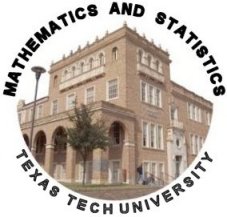Workshops for Students
The mathematics of magic card tricks
Dr. Giorgio Bornia
A magician has a very noble task: to be a generator of Wonder.
It has been said that "a magician never reveals his secrets".
Sometimes the secret is just a fast hand, or the sleeve of a shirt.
Other times, it's all about mathematics.
We will talk about some card tricks and (possibly) discover the undiscoverable.
After that, for the sake of Wonder, you are encouraged to keep the undiscoverable for yourself.
Strangers sharing secrets
Dr. Lars Christensen
How is it possible that we can submit personal and sensitive data over the Internet to, say, iTunes without it ending up in the wrong hands? The answer is cryptography, and cryptography is based on mathematics. In this case, a simple piece of math from more than 200 years ago combined with the fact that it is much easier to multiply than to factor. I will explain how it works and let you try for yourself... it can almost be done by hand, but bring a calculator.
Classifying wallpaper patterns
Dr. Lance Drager
We will present the idea of Euclidean motions in the plane and groups of motions.
We will list the 17 classes of wallpaper patterns, and practice classifying some
example of wallpaper patterns, including some Escher drawings.
Next Up
Dr. Raegan Higgins
This will be a hands-on introduction to difference equations. We will introduce a variety of basic sequences and see how to establish recursive relationships.
The Mathematics of Juggling
Dr. Ram Iyer, Dr. Arne Ledet
In juggling, the balls follow distinctive patterns.
These patterns can be described mathematically in several ways,
for instance as strings of numbers or by means of directed graphs.
We will explain these mathematical descriptions, and illustrate
how they relate to the actual juggling.
Can Math Help Prevent the Spread of Infectious Diseases?
Dr. Angela Peace
When the next epidemic breaks out, how do we prevent it from spreading around the
world? In this workshop we will learn how mathematics can be used to study the
spread of infectious diseases. We will use mathematical models to find out how
rapidly they can be expected to spread, how many people will be affected, and
also what proportion of a population should be vaccinated, if a vaccine exists.
How many kinds of infinity are there?
Dr. Liana Sega
Set theory, founded by Georg Cantor in the second half of the 19th
century, profoundly transformed modern mathematics.
The basic concept of the theory is the notion of size or
cardinality of a set. Counting elements of a finite set is
straightforward, but can we count the elements of an infinite set?
Does it make sense to say than an infinite set is bigger than
another infinite set? How many kinds of infinity are there?
We will discuss the often surprising answers to these questions.
Quilts and Geometry
Carol Williams and Dr. Brock Williams
Math is everywhere, even in the fiber arts.
We will explore how to use geometry and geometric constructions to design quilts.
|

